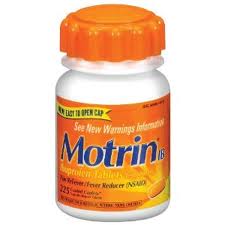I gave this that title because I can be one clueless, lazy broad, at least when it comes to things like exercising, target shooting, and couponing. I've read about the awesome savings people like my blogging buddy Organized Prepper get from couponing. And I've watched the people on TLC's "Extreme Couponing" get $600 worth of groceries for only $2. Invariably, this leads me to castigate myself for being such a spendthrift with Hubby Dear's hard-earned money. I'm fortunate that Hubby Dear makes a good living and we live comfortably, but everyone has a budget. (Or should have a budget. Did you read this?) I could definitely make our budget stretch further if I bargained shopped, but I don't always give it my best effort.
Although I fall far short, I try to live up to the example of the virtuous wife in Proverbs 31. Most of the verses of Proverbs 31 are applicable to the prepping lifestyle, but consider verse 27 in this instance:
She watches over the ways of her household,
And does not eat the bread of idleness.
If the Proverbs 31 woman lived in 2011, would she coupon? Quite possibly.
OK, I've admitted that I'm not exactly the sharpest knife in the drawer when it comes to spotting the best deals. And I definitely do not want to spend a lot of time on couponing. I've got better (read: more fun) things to do. Even so, I have saved LOTS of money with couponing over the past few months and you can, too, with only a modicum of effort.
How, you may ask? It's easy.
Subscribe to the RSS feed of The Krazy Coupon Lady. Most of the hard work will be done for you!
I get the feed sent to Google Reader and every day I learn about all the bargains that are out there.
For example, today they posted that you can buy bottles of Motrin for 78 cents at Wal-Mart using a coupon. They posted a direct link to the coupon, which I printed off and added to my coupon file. Easy Peasy! All I have to do is remember to put Motrin on my shopping list and bring the coupon with me.
 |
| Stockpile OTC meds for pennies |
Obviously, you need sources for coupons. I get a Sunday paper and my extended family has started saving their coupon inserts for me since none of them coupon. You can print a ton of coupons at sites like coupons.com, redplum.com, and smartsource.com. I find that there are a wider variety of coupons available online, but unfortunately there are some stores that act like you're trying to cheat them by using computer printed coupons. My nearest Wal-Mart will not accept BOGO (buy one, get one free) coupons that are home printed, but my little mom and pop grocery store does, so I just use them there.
Each week, The Krazy Coupon Lady site gives a rundown of the coupons that are available and the best places and ways to use them. If you live somewhere where there's a Walgreens or CVS, you can score a lot of free stuff. Since I live out in the boonies, I'm unable to take advantage of those offers, but even so I've saved a lot of money.
There! That's my lazy method of couponing. I let other people do the hard work (finding the bargains) and with a few coupons printed and clipped later, I've got some significant savings off my grocery bill. That makes me feel like I'm a better steward of our money AND I get to stockpile some preps in the meantime.


















